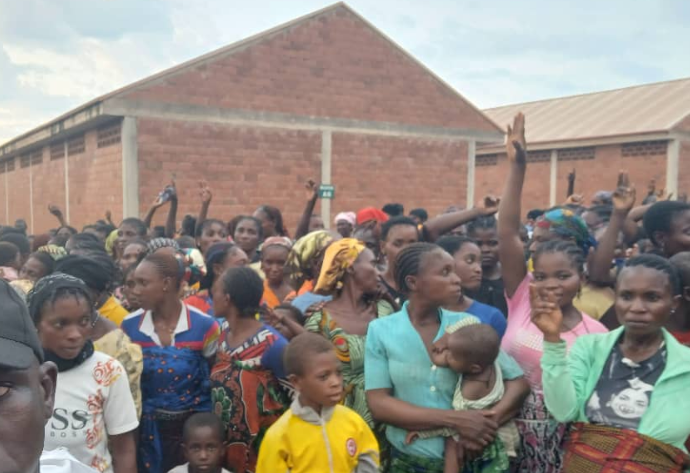Nigeria's Inflation Rate Drops to 22.97% in May, Reports NBS

Nigeria's headline inflation rate eased to 22.97 percent in May 2025, a reduction from the 23.71 percent recorded in April 2025, according to data released by the National Bureau of Statistics (NBS). This represents a 0.74 percent decrease compared to the April figure. On a year-on-year basis, the headline inflation rate in May 2025 was significantly lower by 10.98 percent when compared to May 2024's rate of 33.95 percent. This notable decline is technically attributed to a change in the base year used for calculating the Consumer Price Index (CPI), shifting from 2009 to 2024.
On a month-on-month basis, the headline inflation rate in May 2025 stood at 1.53 percent. This marks a 0.33 percent decrease from the 1.86 percent recorded in April 2025, indicating a slower pace in the increase of the average price level across the economy. The percentage change in the average CPI for the twelve months ending May 2025 over the preceding twelve-month period was 27.55 percent, showing a 1.51 percent decrease compared to the 29.06 percent recorded in May 2024.
Food inflation, a major component, also saw changes. The food inflation rate in May 2025 was 21.14 percent on a year-on-year basis, a substantial 19.52 percentage points lower than the 40.66 percent recorded in May 2024. Similar to headline inflation, this significant decline in the annual food inflation figure is primarily due to the change in the base year methodology. However, on a month-on-month basis, food inflation increased marginally to 2.19 percent in May 2025, up by 0.12 percent from 2.06 percent in April 2025. The average annual rate of food inflation for the twelve months ending May 2025 was 29.80 percent, which was 4.26 percentage points lower compared to the 34.06 percent recorded in May 2024.
The increase in the headline index on a year-on-year divisional level was primarily driven by several key sectors. Food and non-alcoholic beverages contributed 9.20 percent, followed by restaurants and accommodation services (2.97 percent), transport (2.45 percent), housing, water, electricity, gas & other fuel (1.93 percent), education services (1.42 percent), and health (1.39 percent). Other notable contributors included clothing & footwear (1.16 percent), information and communication (0.76 percent), and personal care, social protection, and miscellaneous goods and services (0.76 percent).
Geographically, food inflation varied across states in May 2025. On a year-on-year basis, Borno recorded the highest food inflation at 64.36 percent, followed by Bayelsa (39.85 percent) and Taraba (38.58 percent). Conversely, Katsina (6.90 percent), Rivers (9.18 percent), and Kwara (11.31 percent) experienced the slowest rise. Month-on-month food inflation was highest in Bayelsa (12.68 percent), Cross River (11.15 percent), and Anambra (9.10 percent), while Katsina (-5.42 percent), Jigawa (-4.02 percent), and Kaduna (-3.27 percent) recorded declines.
Nigeria has faced a sharp increase in food prices in recent years, a trend exacerbated in 2023 by President Bola Tinubu’s removal of petrol subsidies and the adoption of a floating exchange rate for the naira. These policy shifts significantly raised the cost of staple foods, pushing many Nigerians into deeper poverty and intensifying food insecurity. The persistent price surge has led to numerous farms and businesses closing, with many agricultural producers reducing output due to insecurity and unpredictable weather. In response, President Tinubu declared a state of emergency on food insecurity in July 2023 and unveiled measures such as suspending duties, tariffs, and taxes on essential food imports like beans, wheat, and husked brown rice. Despite these efforts, food inflation continued unabated for some time.











